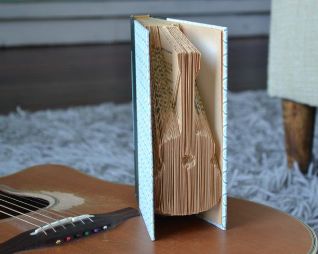
Music and Literacy – by Stephen Fite
Is there really a connection between Music and Literacy? There certainly is and it’s quite strong and very evident in everyday life. The songs we hear and have heard over our lifetime are nothing more than a glorified story with a melody and rhythm. Think back to any song you have ever learned or loved. What does it aim to do? Tell you a story; a tale of love or happiness; hurt or sorrow; redemption and forgiveness.
One of the greatest compliments you can give a songwriter is to tell him/her that “You’re music moved me or touched me or made me think deeply about the subject.” Just as authors of books, magazine articles, etc., seek to inform, move or teach; creators of music seek to do the same. They employ the same adjectives and adverbs that a writer would use when trying to convey a feeling, attitude or scene. They make use of rhyme and syntax just as a poet would do when penning a sonnet. Both are storytellers and wordsmiths; students of the spoken/sung word. But even though their canvas may be different, each attempts to bring to us a descriptive painting of the story they yearn to share.
How do children learn language? How do they add to their library of vocabulary? How do they come to understand its usage and context? By listening and hearing. By retelling what they’ve heard. Teachers have employed story retelling for many years. But when you stop and think about it, the retelling of stories has been a part of the human experience since the human experience began and much of it happens through song.
Each time we sing, we are telling a story. Each time a child sings a tune in your classroom they are doing the same and much, much more. They are building and reinforcing their “library of vocabulary”. With each word they sing, they are better understanding context, descriptive words, rhyming. With each musical “Brain Break” you take, they start to comprehend the use of words as a direction tool and their corresponding movement. With each melody they memorize, they begin to see the symbiotic relationship between syllables and rhythm.
As I have shared in my workshops many times; children learn much of their vocabulary through music. How do we know this? How many times have you had one of your children recite to you the lyrics to a song from the current Top 40 for the Hip Hop or Rap genre?
I remember many years ago giving a concert at an Early Childhood Center in Wagoner, Oklahoma. Before the show, the cutest little Pre-K girl walked up to me wearing her boots and jeans and told me that she knew all the words to Boot Scootin’ Boogie by Brooks and Dunn and then proceeded to prove it.
Music allows us an ease of memorization that the non-musical story or poem just doesn’t. It binds tightly to our being, our soul. It makes the trip back and forth along our synapses much like we travel “over the river and through the woods to…” Well, you know the rest now don’t you.
I wonder why that is?
